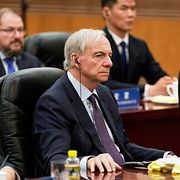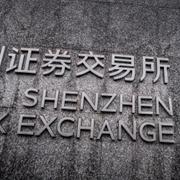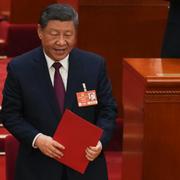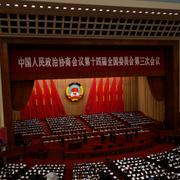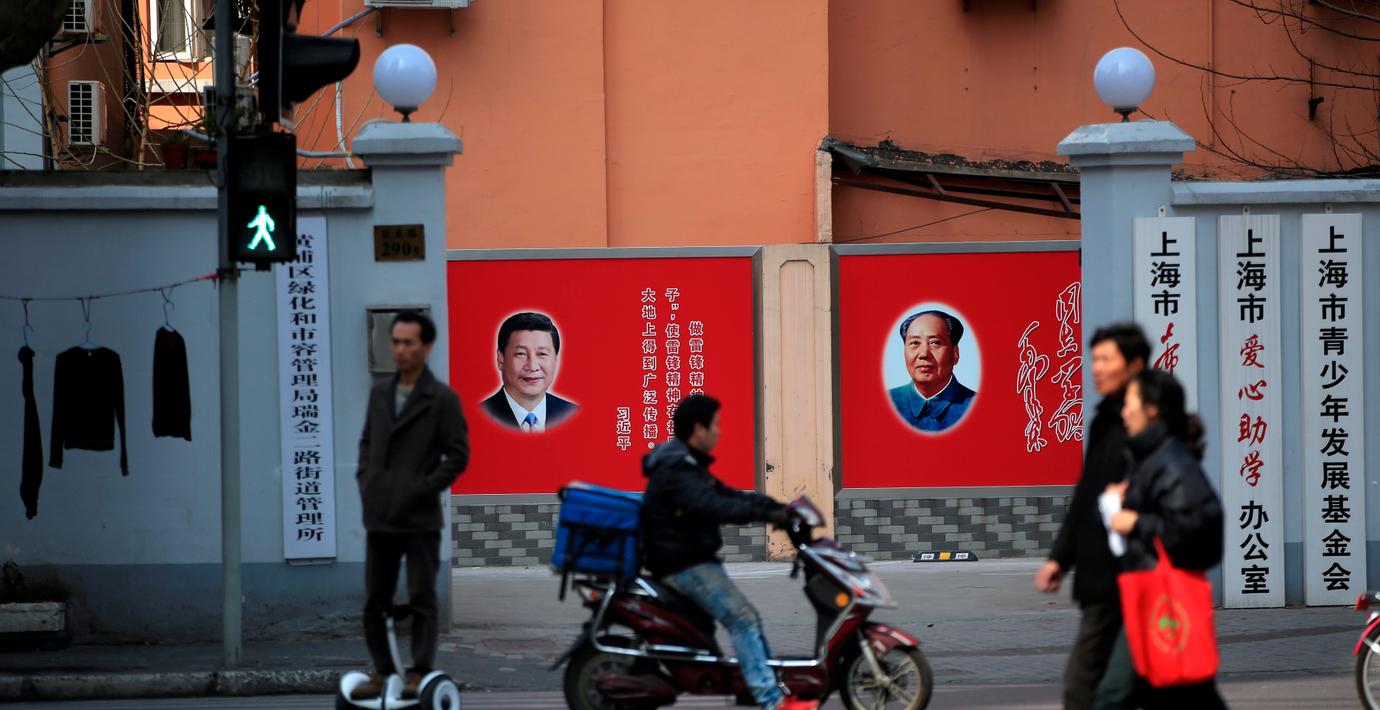
Expert: Kinas president har ingen att skylla på
President Xi Jinping är Kinas mäktigaste ledare på flera årtionden och nu ökar pressen på att han ska leverera. Förra veckan beseglades hans status genom en officiell utnämning till det styrande kommunistpartiets ”kärnledare”. Det innebär, enligt den amerikanska Kinavetaren Cheng Li, att Xi Jinping ensam får ta ansvar för den stora raden utmaningar landet står inför: inbromsning av ekonomin, föroreningar och utsläpp och en allt mer komplex omvärld.
– Det är vad som ligger i den andra vågskålen när man väljer mer makt. I och med alla poster han sitter på kan han inte skylla på någon annan om något går fel, säger Cheng Li om den kinesiske presidenten, till Bloomberg.
bakgrund
Xi Jinping
Wikipedia (en)
Xi Jinping (pronounced [ɕǐ tɕîn.pʰǐŋ], Chinese: 习近平; born 15 June 1953) is a Chinese politician who currently serves as the General Secretary of the Communist Party of China, the President of the People's Republic of China, and the Chairman of the Central Military Commission. As Xi holds the top offices of the party and the military, in addition to being the head of state through the office of the president, Xi is sometimes referred to as China's "Paramount Leader". As the general secretary (de facto leader), Xi is also an ex-officio member of the Politburo Standing Committee, China's top decision-making body.
The son of Communist veteran Xi Zhongxun, Xi Jinping rose through the ranks politically in China's coastal provinces. Xi served as the Governor of Fujian, from 1999 to 2002, and then as the Governor and the Party Committee Secretary of the neighboring Zhejiang, from 2002 to 2007. Following the dismissal of Chen Liangyu, Xi transferred to Shanghai as the Party Secretary for a brief period in 2007. Xi joined the Politburo standing committee and central secretariat in October 2007, and was Hu Jintao's successor. Xi served as vice-president from 2008 to 2013 and Vice Chairman of the Central Military Commission from 2010 to 2012.
Xi has attempted to legitimize the authority of the Communist Party, by introducing far-ranging measures to enforce party discipline and to ensure internal unity, as well as initiating an unprecedented and far-reaching campaign against corruption. Xi's anti-corruption campaign has led to high-profile arrests such as General Xu Caihou and Zhou Yongkang. Xi has also imposed further restrictions over ideological discourse, advocating the concept of "internet sovereignty".
Considered the central figure of the People's Republic's fifth generation of leadership, Xi has significantly centralized institutional power by taking on a wide range of leadership positions, including chairing the newly formed National Security Commission, as well as new steering committees on economic and social reforms, military reform, and the Internet. Xi has called for further market economic reforms, for governing according to the law and for strengthening legal institutions, with an emphasis on individual and national aspirations under the neologism "Chinese Dream". Xi has also championed a more assertive foreign policy, particularly in relation to Sino-Japanese relations, China's claims to the bulk of the South China Sea Islands, involvement in Asian regional affairs, and initiatives related to energy and natural resources.
Omni är politiskt obundna och oberoende. Vi strävar efter att ge fler perspektiv på nyheterna. Har du frågor eller synpunkter kring vår rapportering? Kontakta redaktionen
